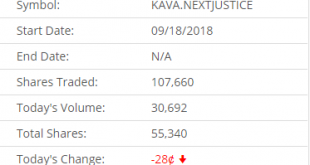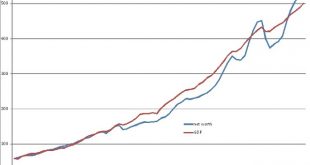from Dean Baker Debt and Deficits, Again With the possibility that the Democrats will retake Congress and press demands for increased spending in areas like health care, education, and child care, the deficit hawks (DH) are getting prepared to awaken from their dormant state. We can expect major news outlets to be filled with stories on how the United States is on its way to becoming the next Greece or Zimbabwe. For this reason, it is worth taking a few moments to reorient ourselves on...
Read More »Will a robot take my job? Wrong question!
I’ve just done a review article for Inside Story. The headline is Will a robot take my job? but the central point is that this is the wrong question to ask. While technology has a logic of its own, what really matters is our current set of economic and social structures, the financialised version of capitalism commonly called “neoliberalism“. The article is a review of three excellent books:2062 by Toby Walsh;Made by Humans by Ellen Broad; andThe Future of Everything by Tim Dunlop Read...
Read More »The New Language of Resource Exploitation: From Staples Dependency to Extraction Empire
“Staples dependency” we know from Innis onwards. It can mean reliant upon, dependent on, the export of staples, and permits of a staple theory of linkages as economic theory. It can also mean a resource margin of a more developed imperium. Economic theory is infused by the power relations inherent in “dependency” and is transformed into political economy. In the shifting fashions of scholarship, over time “dependency” came not to be permitted as appropriate political economy. This in turn...
Read More »Open thread Sept. 25, 2018
The subtleties of effective demand
from Asad Zaman As I read more and more about effective demand, I got more and more confused — how can I explain this concept to my poor students, if I don’t understand it myself? There are a huge number of articles with different and conflicting views and interpretations of this concept, which Keynes describes as being central to his theory. Let me proceed to clarify the insights that have resulted from struggling with this material, and going through many iterations of revisions in...
Read More »Re-examining economic laws
from Lars Syll In mainstream economics, there is a lot of talk about ‘economic laws.’ The crux of these laws that allegedly do exist in economics, is that they only hold ceteris paribus. That fundamentally means that these laws only hold when the right conditions are at hand for giving rise to them. Unfortunately, from an empirical point of view, those conditions are only at hand in artificially closed nomological models purposely designed to give rise to the kind of regular associations...
Read More »PMI, Existing home sales, Permits, Homebuying index, Fed book, China car sales, Federal budget
Highlights Amid a backdrop of rising inflation pressures, sharp slowing in the services PMI sample pulled down September’s composite flash and masks a strong showing for manufacturing. The PMI composite fell to 53.4 which is well below Econoday’s consensus for 55.1 and also below the low estimate for 53.8. Services fell to 52.9 vs a consensus for 55.0 while manufacturing, however, rose to 55.6 vs expectations for 55.0. Weakness in services is centered in the year-ahead...
Read More »Is this Short Covering, or Are the Suckers Flooding the Market?
Via ElNuevoDia at LG&M, “Gamblers are now betting that Kavanaugh will not be confirmed.” The market in question, at PredictIt, seems rather straightforward. Note, though, that the contract only opened five days ago (18 September) and traded consistently in the 60-70% range through yesterday (22 Sep), closing at 61% and only reaching as low as 55%. In the past two hours, more than 20,000 transactions has occurred, which is greater than the volume on...
Read More »Catch 22.4
As the number of workmen that can be kept in employment by any particular person must bear a certain proportion to his capital, so the number of those that can be continually employed by all the members of a great society must bear a certain proportion to the whole capital of that society, and never can exceed that proportion. — Adam Smith, The Wealth of Nations An”invisible hand” reaches up out of the subterranean depths of that “whole capital”...
Read More »The real problem with free trade
from Jayati Ghosh Even if free trade is ultimately broadly beneficial, the fact remains that as trade has become freer, inequality has worsened. One major reason for this is that current global trade rules have enabled a few large firms to capture an ever-larger share of value-added, at a massive cost to economies, workers, and the environment. For most critics of globalization, trade is the villain, responsible for deepening inequality and rising economic insecurity among workers. This...
Read More » Heterodox
Heterodox




